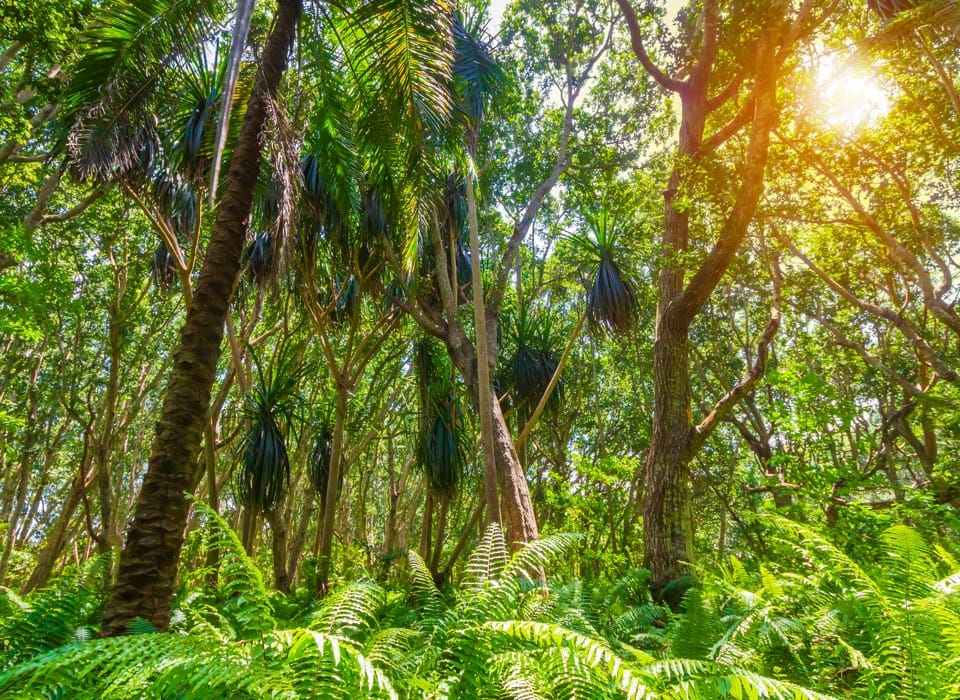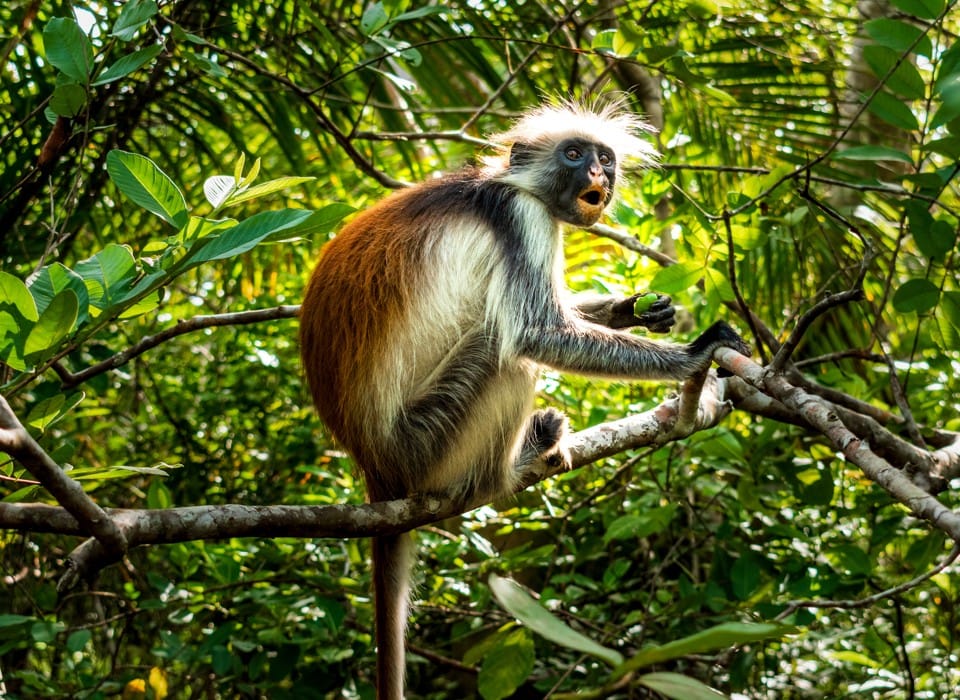
The heat of summer (corresponding to the northern hemisphere winter) is often cooled by strong sea breezes associated with the northeast monsoon (known as Kaskazi in Kiswahili), particularly on the north and east coasts.
Being near to the equator, the islands are warm year-round.
Rains occur in November but are characterised by brief showers. More prolonged rains usually occur in April and May in association with the southwest monsoon (known locally as Kusi in Kiswahili).

Endemic mammals with continental relatives include the Zanzibar red colobus, one of Africa's rarest primates, with perhaps only 1,500 existing.
Rare native animals include the Zanzibar leopard and the Zanzibar Servaline Genet.
There are no large wild animals in Unguja. Forest areas such as Jozani are inhabited by monkeys, bush-pigs, small antelopes, civets, and, rumor has it, the elusive leopard.
Various species of mongoose can also be found on the island.
There is a wide variety of birdlife and a large number of butterflies in rural areas.
Contact us for more information

